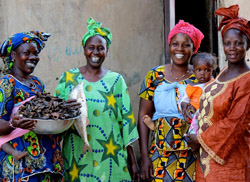Kenya is known for its long queues. There is a common joke that in Kenya, you work hard for your money then have to queue even harder to access it at your local bank branch. People even have to queue at ATMs, which were designed to solve the queueing problem in bank halls in the first place.
Fortunately, banks were first adopters of technology. By introducing mobile banking, most people no longer need to physically visit their banks, or even go to ATMs. When your money hits the account, be it from salary or payment from any other source, your phone dings with a message alerting you of the payment. Using the same phone, you can log into your bank app to transfer the money to your landlord’s account, or to your M-Pesa wallet for ease of use. Welcome to the 21st Century!
Other industries have also quickly adopted technology to ease operations, not only in payments, but also for service provision.
The National Health Insurance Fund (NHIF) is one such service provider whose adoption of technology has been greatly beneficial. You no longer have to brave long queues to register, as you can now do that with just the click of a button.
Requirements for registration, which is free, are simple: you need to be a Kenyan citizen with a national ID card. Dependants – children under the age of 18 – are registered with their passports or birth certificates.
Registering for Linda Mama

NHIF runs the government programme initially known as Free Maternity Care, which was upgraded and renamed, Linda Mama, Boresha Jamii.
All pregnant women are eligible for the Linda Mama programme. All they need to do is register to access free maternity services, which include pre-natal care, delivery and post-natal care.
For registration, one can either walk to the nearest Huduma Centre or NHIF service centres. However, for those who abhor queuing at these centres, a mobile phone comes in handy. You don’t need a smartphone or internet connection either. Simply dial *263# on your phone, whether it is a ‘kabambe’ or smartphone. You will then be directed to the service you need – payment, maternity or any other service. For maternity services, you must have your ID number or ante-natal card. Note that you can pay for other services using the USSD code, or otherwise log onto www.nhif.or.ke.
Similarly, registering for UHC has gone online, with each county designing their own process. Initial reports after the UHC launch indicate that registration was so impressive that some medical facilities struggled to meet the demand. Patients in the pilot counties were required to register in order to benefit from the programme.
In Kisumu, the county partnered with PharmAcess to facilitate digital registrations into NHIF through a public-private partnership.
This was by way of partnership with Safaricom’s M-TIBA mobile application platform, as has been discussed in a previous sub-topic. Community health workers were engaged by PharmAcess (an entrepreneurial organisation dedicated to connecting more people to better healthcare in Africa through the mobile phone) and empowered to register residents using a smartphone with the M-TIBA application. M-TIBA is linked to NHIF, meaning that registration is automatic and real-time, which also allows for immediate issuance of registration numbers. The health workers also record socio-economic data of the residents.
The county further partnered with the Amsterdam Institute for International Development, which developed a poverty mapping tool.
The registration process started before the launch, with then Cabinet Secretary for Health Sicily Kariuki visiting the different counties to sensitise people about the registration process and its importance. She was hosted in Kisumu by Governor Anyang’ Nyong’o on November 15, 2018, where they launched the registration at Okore Oganda Primary School. The county was expected to register 240,000 people.
